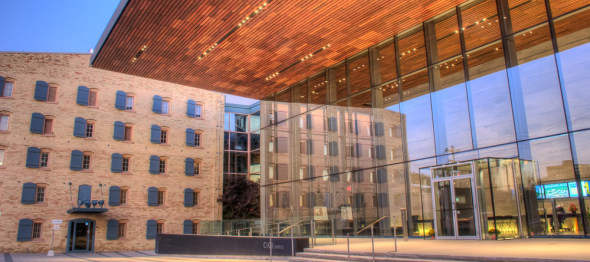
Event Details
- Wednesday, May 6, 2015
- 7:00 pm - 9:00 pm
- Free
- CIGI Campus Auditorium
67 Erb Street West, Waterloo
OR via Webcast
Breaking Climate Inertia:
A “Radically” Practical Approach
Provincial Carbon Pricing
The vast majority of Canadians agree, better climate policy is needed in Canada. However the limited discussion around policy solutions is highly polarized and regionally divisive. Chris Ragan will discuss a new middle-ground approach that addresses two critical questions: What is the most cost-effective way to achieve GHG reductions that aligns with our economic prosperity? And what is the most pragmatic way to achieve those reductions in the context of our highly diverse Canadian federation? The answers will draw from the Commission’s latest report The Way Forward:A Practical Approach to Reducing Canada’s Greenhouse Gas Emission which makes the case for provincial carbon pricing.
For more information, visit the Centre for International Governance Innovation website.
Speaker:
Christopher Ragan, Economist, McGill University, Canada’s Ecofiscal Commission
Christopher Ragan has been a professor of economics at McGill University since 1989. He is also a Research Fellow at the C.D. Howe Institute where from 2010 through 2013 he held the Institute’s David Dodge Chair in Monetary Policy, and for many years was a member of the Institute’s Monetary Policy Council. From January 2009 through June 2010, he was the Clifford Clark Visiting Economist at the Department of Finance in Ottawa, where he served as a senior advisor to the Minister and other senior Finance officials. During 2004-05, he served as the Special Advisor to the Governor of the Bank of Canada.
Ragan is the author of Economics (formerly co-authored with Richard Lipsey), which after fourteen editions is still the most widely used introductory economics textbook in Canada. Ragan also has a regular column in The Globe and Mail. During the mid-1990s he was the founding Editor-in-Chief of World Economic Affairs.
Chris Ragan received his B. A. (Honours) in economics in 1984 from the University of Victoria and his Master’s degree in economics from Queen’s University in 1985. He then moved to Cambridge, Massachusetts where he completed his Ph.D. in economics at M.I.T. in 1989.

